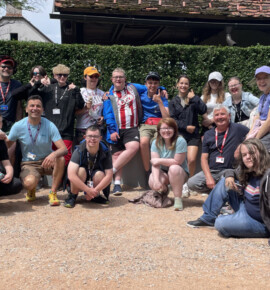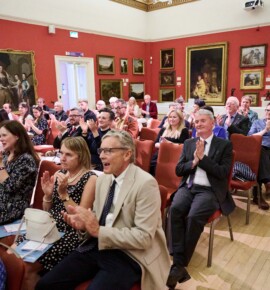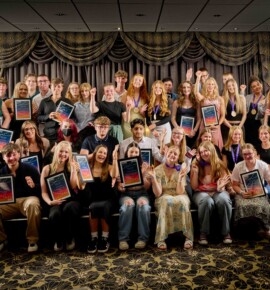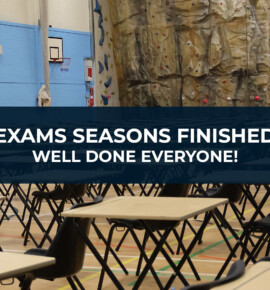SUSTAINABILITY AT PETROC

Petroc is situated in an Area of Outstanding Natural Beauty and UNESCO Biosphere Reserve and, as such, we believe we have a responsibility to ensure that the college - and its staff and students - is committed to environmental sustainability in Devon and beyond.
We are continually striving to improve all areas of sustainability at our campuses, including recycling and waste, travel, energy use and procurement, and we actively encourage all staff and students to join us to help protect the environment and preserve resources.
We are a member of the Environmental Association for Universities and Colleges, and the Plastic Free North Devon Consortium, and in 2019, signed up to support the UN Sustainable Development Goals.
Passionate about the environment
On 20 September 2019, Petroc signed up to support the UNs Sustainable Development Goals.
The 17 Sustainable Development Goals (SDGs), are an urgent call for action by all countries - developed and developing - in a global partnership. They recognize that ending poverty and other deprivations must go hand-in-hand with strategies that improve health and education, reduce inequality, and spur economic growth – all while tackling climate change and working to preserve our oceans and forests.
By signing the SDG pledge, Petroc agrees to:
- Support and promote the principles of the SDGs.
- Contribute to the achievement of the SDGs by ensuring that our schools and major programs are environmentally sustainable and socially inclusive.
- Support and encourage our teachers and educators to deliver lessons on the SDGs.
- Provide educational opportunities for our students to acquire the knowledge and skills needed to engage with the SDGs.
- Join the global movement to achieve SDGs by 2030.
The goals cover: No Poverty; Zero Hunger; Good Health and Well-being; Quality Education; Gender Equality; Clean Water and Sanitation; Affordable and Clean Energy; Decent Work and Economic Growth; Industry, Innovation and Infrastructure; Reduced Inequality; Sustainable Cities and Communities; Responsible Consumption and Production; Climate Action; Life Below Water; Life on Land; Peace and Justice Strong Institutions; Partnerships to achieve the Goal
The Plastic Free North Devon consortium was set up in April 2018 to combat the global problem of plastic pollution through local action. The consortium consists of representatives from a number of charities, voluntary groups and organisations, including Petroc:
- Barnstaple Town Council
- Barnstaple and District Chamber of Commerce
- Beaford Arts
- Devon County Council
- Ilfracombe Town Council
- Keep Britain Tidy
- National Trust
- North Devon Coast AONB
- North Devon Council
- North Devon Biosphere Reserve
- Plastic Free North Devon
- South Molton Town Council
- Torridge District Council
- 2 Minute Beach Clean
- Westward Ho! Business Association
Find out more about the consortium.
We support all members of the consortium to help promote work being done to improve our local environment.
For more information about single-use plastics and how you can support the Plastic Free movement, please visit Plastic Free North Devon’s Facebook page. You can also view this short film concerning the effects of plastic pollution and what we can all do to make change.
For details about upcoming beach and countryside cleans, please visit the AONB website.
In 2021, Petroc signed the North Devon Biosphere's (NDB) Nature Recovery Declaration. We have signed to work towards the following environmental pledges:
- Help nature to recover around our college grounds by creating and managing nature-friendly habitats.
- Educate our students more about the state of nature and nature's recovery in northern Devon by using more local examples in our curriculum.
- Think more about the food we offer in school meals and where it comes from, sourcing locally whenever possible from local farmers/fishers and producers who are helping nature's recovery.
- Reduce/avoid the use of pesticides, herbicides, peat-based composts, and plastics in our college.
- Encourage our students and staff to sign the Declaration.
By working towards these pledges, we are contributing a small part to the vision outlined in the NDB's Nature Recovery Plan, which details how we can work collaboratively to tackle the ecological and climate emergency in the Biosphere area.






